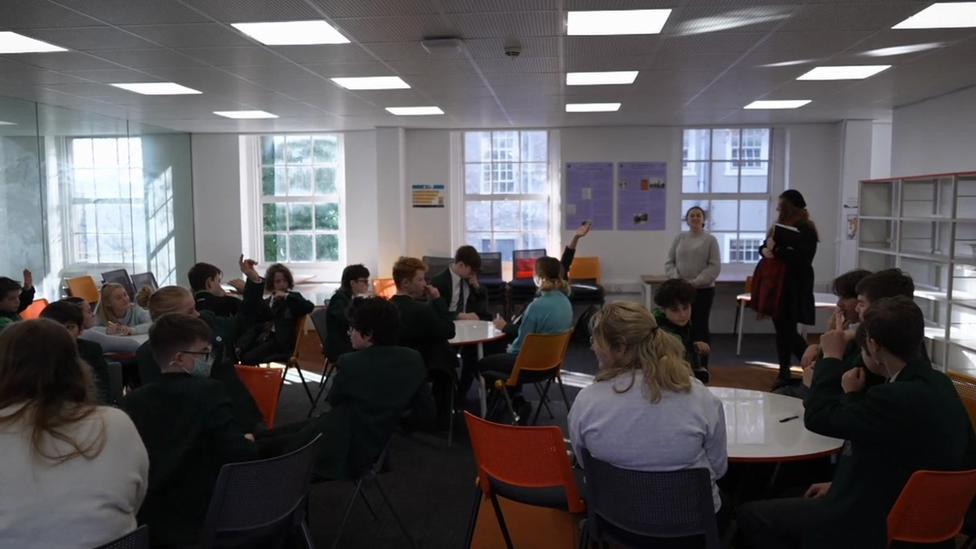Grief: Teenagers make videos to help young people with loss
- Published
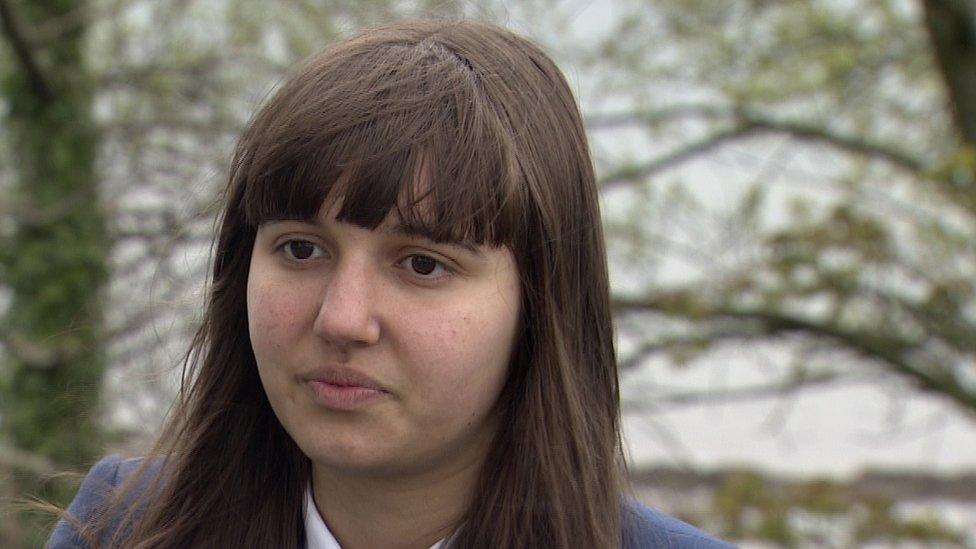
Emma says she worries her brother could be forgotten
"That's how grief shows up - grief is the love you had for them."
Those are the words of 13-year-old Emma whose baby brother Georgie died from cancer when he was six months old and she was four.
Emma is part of a group of teenagers who have lost loved ones and who have created a set of videos to help other young people start to navigate their own journey with grief.
"We still try to remember him in any way that we can," Emma said.
"It was just so long ago and it can be a bit difficult, feeling like it's so long since he was here.
"I get quite worried that people are going to forget about him."
Emma said that losing a sibling when she was so young herself created feelings of anxiety.
"I was scared of my mum dying every time she went to sleep," she said.
"I had a lot of anxiety and that anxiety didn't even show up until years later. So my primary school years were quite difficult."
Emma's anxiety is improving but she still worries.
"You're sort of known as the mature person in your friend group. I think it's because you know what the worst case scenario is and you're always worried about it happening to your friends and your family."
Breaking down a taboo
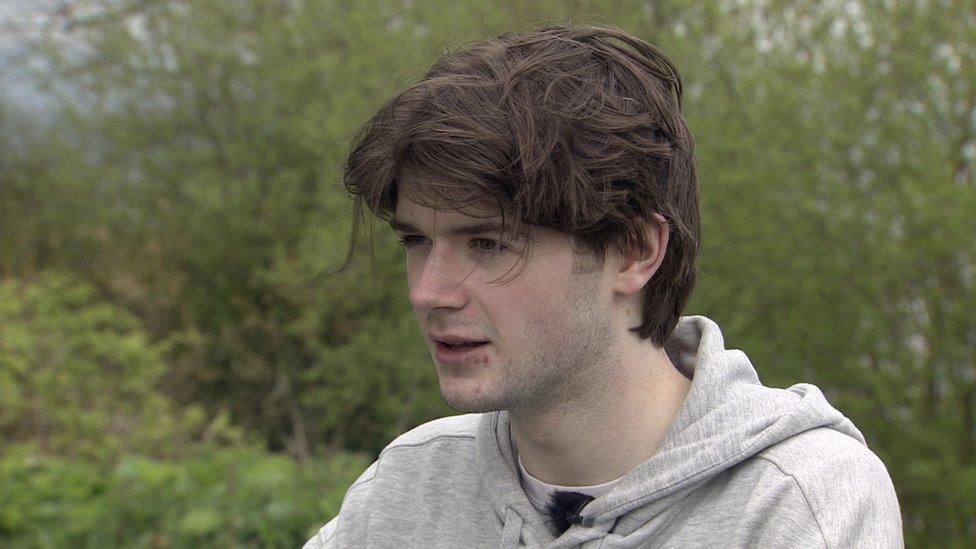
Charlie wanted to take part in the project to help break down some of the taboos that surround grief
Charlie, who's 17, lost his friend in 2020.
"We were so close. We talked about what we would do in the future and what uni we'd go to and the fact I don't get to experience that - he was such a ball of energy in my life - was really hard for me," said Charlie.
He wanted to take part in the project to help break down some of the taboos that surround grief.
"In school I would get assemblies about maybe drink or drugs but I never got anything about grief. So whenever it happened, I didn't really know the steps to take," Charlie said.
"I think breaking down the wall of it being taboo and a touchy subject to talk about is really important because it would mean more people are able to get through it a lot easier.
"You can't get rid of grief but you can sort of build your life around it."
'My dad was my friend - he made us feel safe'
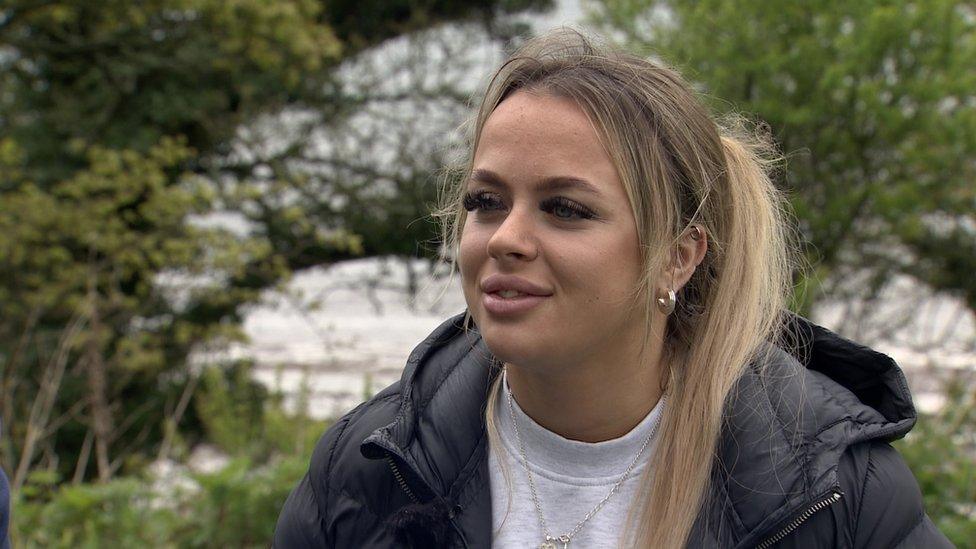
"Some days I don't want to talk about it, some days all I want to do is talk", says Chloe
Chloe's dad died a month before her 18th birthday, last June.
He had leukaemia.
"My dad was a different kind of dad. He was more like a friend at times," she said.
"He also made us feel really protected at home as well - he made us all feel safe.
"Some days you're angry and some days you're sad and some days you're happy, and some days you don't think it's real and he's going to come home.
"It's very individual. Some days I don't want to talk about it, some days all I want to do is talk."
One of the topics in the videos is how to cope with birthdays and anniversaries.
Chloe and her family had to decide how they wanted to mark his birthday and how to celebrate her 18th birthday.
"We still had dinner like a family and it was different because he wasn't there but it was nice to do something in his memory," she said.
The family went to his grave and bought a birthday cake.
"I went on with my birthday because he would have wanted me to go out and I think I did that mostly in his memory," Chloe said.
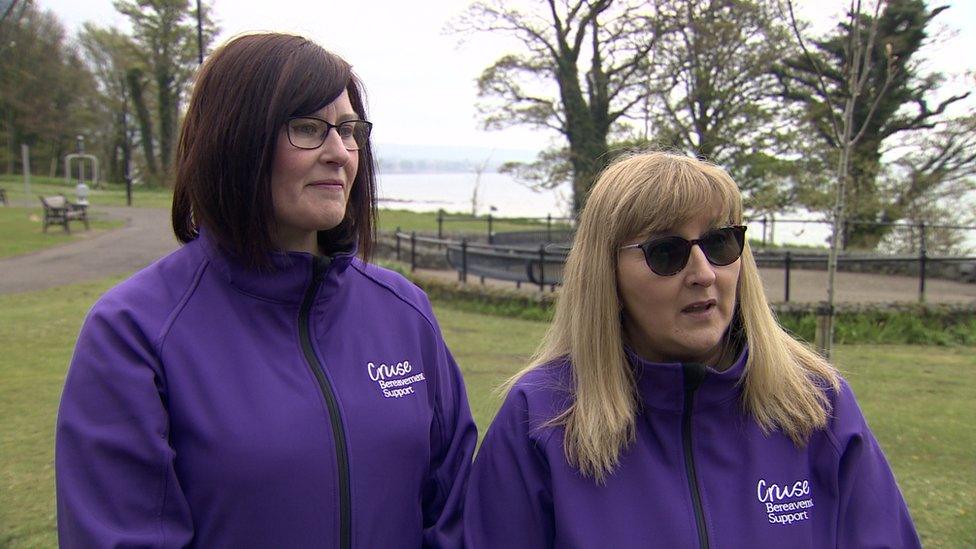
Eleanor Ellerslie and Linda Warwick from Cruse
The Teenage Youth Bereavement project is a joint partnership between Funeral Partners NI and grief charity Cruse Bereavement Support NI.
The videos include teenagers talking about how to cope immediately after a death, coping at school or college and advice for adults on how to be a grief ally.
Eleanor Ellerslie from Cruse said: "They've been there, they've been through the grief and they know they can pass on different bits of advice and guidance.
"For the young people, it's important that their voices are heard," added Linda Warwick from the organisation.
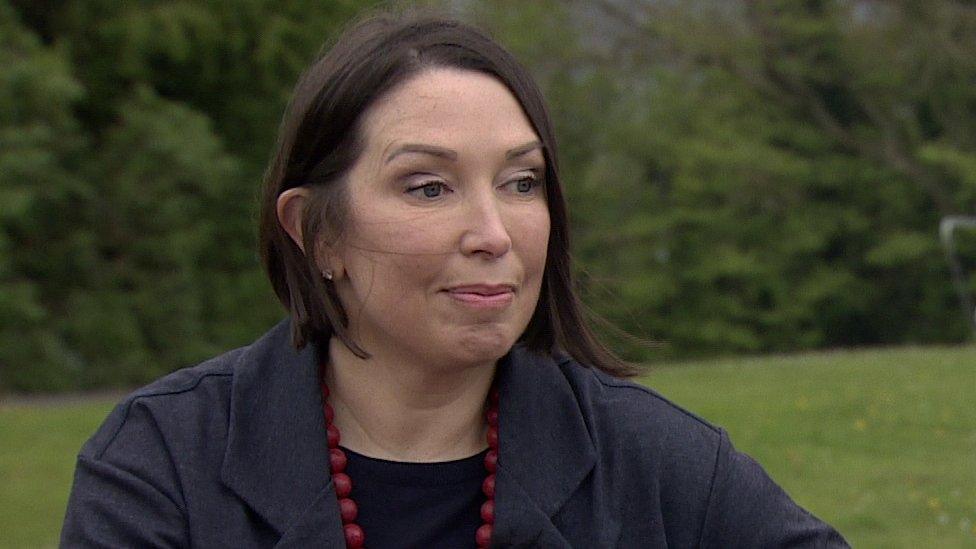
Beverley Brown from Funeral Partners NI says all feeling are valid while someone is grieving
Beverley Brown from Funeral Partners NI said: "Several things struck me while we were filming - how individual everyone's journey is and how valid your feelings are.
"Just because you're feeling different to your friend, your mum, your dad - whoever it is - doesn't mean your feelings are any less valid."
'Just give yourself time'
Like all the young people involved in the project, Emma wants to pass on what she's learned during her journey with grief, to other young people.
"Just give yourself time," she said.
"It is a lifelong journey. You don't have to be worried that you're taking up too much time, because that person was very important to you.
"Grief is there because you love that person, so you can't expect yourself to stop loving them.
"That's how grief shows up, grief is the love you had for them."
Related topics
- Published12 February 2020
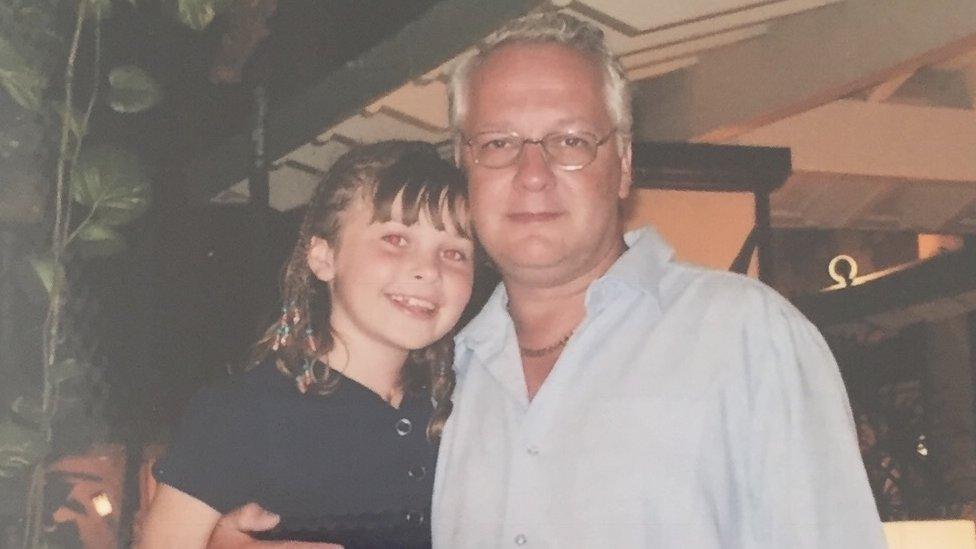
- Published16 December 2022
